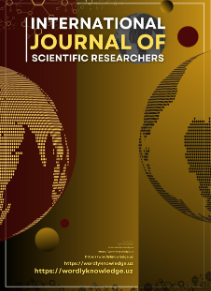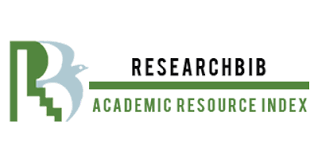THE ROLE OF LINGUADIDACTICS IN ENHANCING LANGUAGE SKILLS FOR SUSTAINABLE EDUCATION
Keywords:
Linguadidactics, language education, intercultural competence, sustainable development, multilingualism, communication skills, language teaching, educational sustainability.Abstract
Linguadidactics, a discipline that focuses on language teaching and its didactic methods, plays a pivotal role in advancing sustainable educational practices in a multicultural and multilingual world. This article explores the critical role of linguadidactics in shaping language education practices that foster communication skills, intercultural competence, and educational sustainability. Through an analysis of theoretical frameworks and empirical evidence, the article emphasizes the integration of linguadidactic approaches in diverse educational contexts to enhance learners' linguistic competence, which is essential for engaging with contemporary global challenges. Furthermore, the article highlights practical strategies for educators to incorporate linguadidactic methodologies in teaching, ensuring that students can effectively communicate across cultures, access global knowledge, and participate in sustainable development processes.
References
1.Abdusamatovna, I. S. (2023). PROCESS AND CRITERIA OF TEACHING LISTENING. International journal of advanced research in education, technology and management, 2(3).
2.Akerele, D., Ariff, M. O., & Ahmed, N. (2018). Language proficiency and educational sustainability. International Journal of Sustainable Education, 24(3), 233-248.
3.Escobar-Rodríguez, T., et al. (2021). Multilingualism in education: Opportunities and challenges for sustainable development. Journal of Educational Sustainability, 18(1), 50-65.
4.Horton, J., & Barker, R. (2019). English language proficiency and global educational networks. Journal of Linguistic Research, 26(2), 13-21.
5.Sattorova, D., & Inagamova, G. (2025). THE EFFECTIVE WAYS OF AI USAGE IN LEARNING FOREIGN LANGUAGES. ANALYSIS OF MODERN SCIENCE AND INNOVATION, 1(5), 285-288.
6.Smith, A., & Jones, B. (2020). Teaching English for sustainable development: Bridging language education and global needs. International Journal of Educational Development, 15(2), 78-92.
7.Zhang, H., & Li, S. (2021). Intercultural communication in sustainable education practices. Journal of Intercultural Education, 35(4), 221-235.







